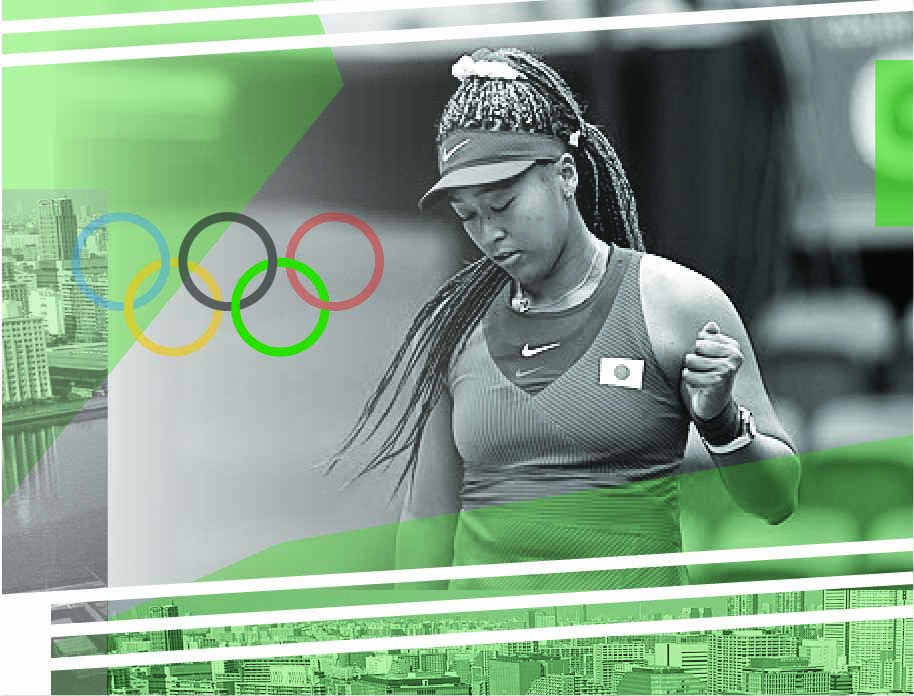
Prof Garry Whannel
Emeritus Professor of Media Cultures at the University of Bedfordshire. For over 40 years, he has written on media, culture, leisure and sport. His recent publications include Understanding the Olympics (with John Horne) 2020; The Trojan Horse: (with Deborah Philips) 2013; Culture, Politics and Sport 2008.

Section 4: Fandom & National Identity
- The Tokyo 2020 Olympic Games: British imperial identity affirmed
- How much is too much home-nation focus in Olympic coverage?
- South Korea’s changing status and perspective on Japan
- National and ethnic Chinese identities on the Indonesian badminton court
- Home advantage in the Summer Olympic Games: evidence from Tokyo 2020 and prospects for Paris 2024
- Historical disputes, national identity, and the South Korea-Japan summit that did not happen
- Sports betting and the branded purity of the Olympics
- Communicating corporate social responsibility at the Tokyo 2020 Olympic Games
- Silence in the stands: Does it matter for fans?
- Fans as MVP, or the need for sensuous audiences in sport
- Red, white, and rivalry: A brief discussion of United States rivalry at the Tokyo Olympic Games
- Empty stadiums and the other sites of Olympic fandom
- Pop culture diplomacy: Japan’s use of videogames, anime to promote the Olympics and appeal to younger audiences
- Fans as MVP, or the need for sensuous audiences in sport
- Red, White, and Rivalry: A Brief Discussion of United States Rivalry at the Tokyo Olympic Games: Olympic and Paralympic Analysis 2020: Media, Fans and the Politics of Sport
- Empty stadiums and the other sites of Olympic fandom
- At the intersection of COVID-19 and Tokyo Olympics 2020: Vlogs and the expression of Chinese nationalist sentiments
The start, as often, was sluggish, prompting Ingebrigtsen (Norway) to take the lead and set a fast pace. After one lap, the out-of-form favourite, Cheruiyot (Kenya), took over. Of course, we cannot know the race plans athletes start with, although we can speculate. It has been said that no military plan survives the first battle, or rather more pithily, the boxer Mike Tyson once said that everyone has a plan until they are punched in the face.
On the athletics circuit, one sees staged record attempts, in which pace-makers set a fast pace for three laps, leaving the star to spring towards hoped-for glory. Tournament running is more tactical, and results in a slower race but the faster runners generally hope the pace will be sufficient to burn out some of the sprinters. Ingebrigtsen may not have known Cheruiyot would take the lead, but it was certainly to his advantage. Consequently, by the last-lap bell, others were being left behind. Ingebrigtsen and Cheruiyot ran neck and neck for the next 200 metres, while behind them Josh Kerr fought to overtake the other Kenyan, Kipsang. Ingebrigtsen won the race for gold in a new Olympic Record, and Cheruiyot held off a fast-finishing Kerr to gain silver. One ghost at the party is El Guerrouj, whose 1998 World Record of 3 minutes 26 seconds has yet to be surpassed.
Ever since the television age matured in the 1970s, the audience of live spectators in the host city (absent on this occasion, due to Covid) has been dwarfed by global television audiences. Being there has its own elan, but the television view is in many ways superior – offering close ups, action replays, and analyses. It also imposes its own maps of meaning – cultural frames of reference, which differ from country to country. These hierarchies are a product of history, televisual properties of particular sports, the presence of globally recognised star performers, but above all by patriotism. Events in which your nation has medal chances are invariably given higher profile. Athletics is a major showcase Olympic sport around the world. In the UK, though, it has been challenged and overhauled by rowing and cycling, among others, as more medals are won.
For a British audience, though, the 1500 metres (and its near relative, the mile) are haunted by history. Television re-inscribes mythologized moments, particularly Bannister’s sub-four minute mile, in 1954, and the rivalry between Coe and Ovett, who along with Steve Cram, dominated middle distance running between 1978 and 1986. Even myths fade and decline in significance in television’s constant re-inscribing of the historical narrative.
At Tokyo Olympics, three British runners made the final for the first time in 37 years. The 1984 final was alluded to with brief clips. but did not feature centrally in the build-up. The contrast between the early 1980s, when three British runners dominated the event, and the present, when three Brits had an outside chance of a medal, would have disrupted the high pitched and rather self-regarding bubbly positivity of the coverage. Drawing attention to the ghosts of 1979-1985, when the mile record was broken six times by the British trio, could have evoked a degree of post-imperial nostalgia, a yearning for those unspecified times when Britain was “Great”.
So, the golden age video showreel got brief exposure, and then Kerr was allowed his moment in the limelight with his bronze. The professional practices of television routinely make these fine judgements, without consciousness of the ideological conjunctures that frame such practices. The Olympic Games has become, among other things, a global stage for symbolic national prowess, celebrated in ritualistic display. It now seems almost compulsory for winners to drape themselves in the national flag. It is one of the contradictions of Olympism that predominantly individual achievements are neatly sutured into the mythology of the nation. Team GB (which, although few have protested, technically excludes Northern Ireland), is a concept from out of public relations, image consultancy and brand management. It provides an identity in which we are all supposedly encapsulated (though a significant proportion regard sport with indifference). As such, it offers a magical resolution of the messier realities of multiple complex identities through which people live their experience. A double consciousness of insider/outsider status is often part of the ambivalence of national identities of those whose background includes Celtic, African, Caribbean, Jewish, Islamic, Indian, or other “outsider” origins. As a half-Scot, do I rejoice more that Josh Kerr is the first Scot to win a middle-distance medal? Perhaps not, otherwise I would check this fact. Best just to enjoy the race as a contest between some highly trained individuals and try and resist the all-engulfing national frame of reference.

